In this Best Of roundup, we take a look at the top five plugins incorporating artificial intelligence.
Artificial intelligence in music software: helpful presence or the death of creativity? Like it or not, AI is making its way into more and more software (and even some hardware, like the Roland Jupiter-Xm). We’re not here to debate this topic today but rather to highlight some of the top plugins making use of AI in some way. If we had to choose sides, we’d go with the virtual assistant argument. After all, the lone producer who does everything him or herself—composer, recording, mixing, and mastering—is a relatively new phenomenon. Why should we be expected to know how to do everything?
When one thinks of music AI, however, most of the time we imagine a ‘set it and forget it’ scenario, where the producer goes off to make a cup of coffee while the AI gets on with writing a song. The reality is a little different, as these five pieces of software will attest. Some do feature AI in a more prominent role while others have it rabbiting along unseen in the background. Either way, the main aim seems to be to make our lives as producers easier. And there’s nothing wrong with that.
As always, our list is organized in order of ascending price. In the case of software that offers different pricing schemes, we have listed it by its starting price. Prices were correct at the time of publication.
Let’s greet our new AI overlords, shall we?
1
Jamahook Jamahook Sound Assistant
jamahook.com
Plans from £3.50
Tired of endlessly searching for the perfect sample? Let AI help you with that. Jamahook Sound Assistant is a subscription-based plugin that sits in your DAW and finds samples for you. Insert it onto your master channel (or any other channel you prefer) and click the big Match button. Using AI, it will examine the audio stream and detect BPM, genre, mood, and key. It will then make suggestions based on the detected audio. Suggestions are divided into three categories: harmony, rhythm, and drums. You can also apply filters on the results based on mood, instrument and genre, so if you want to restrict the option to a 303 you can.
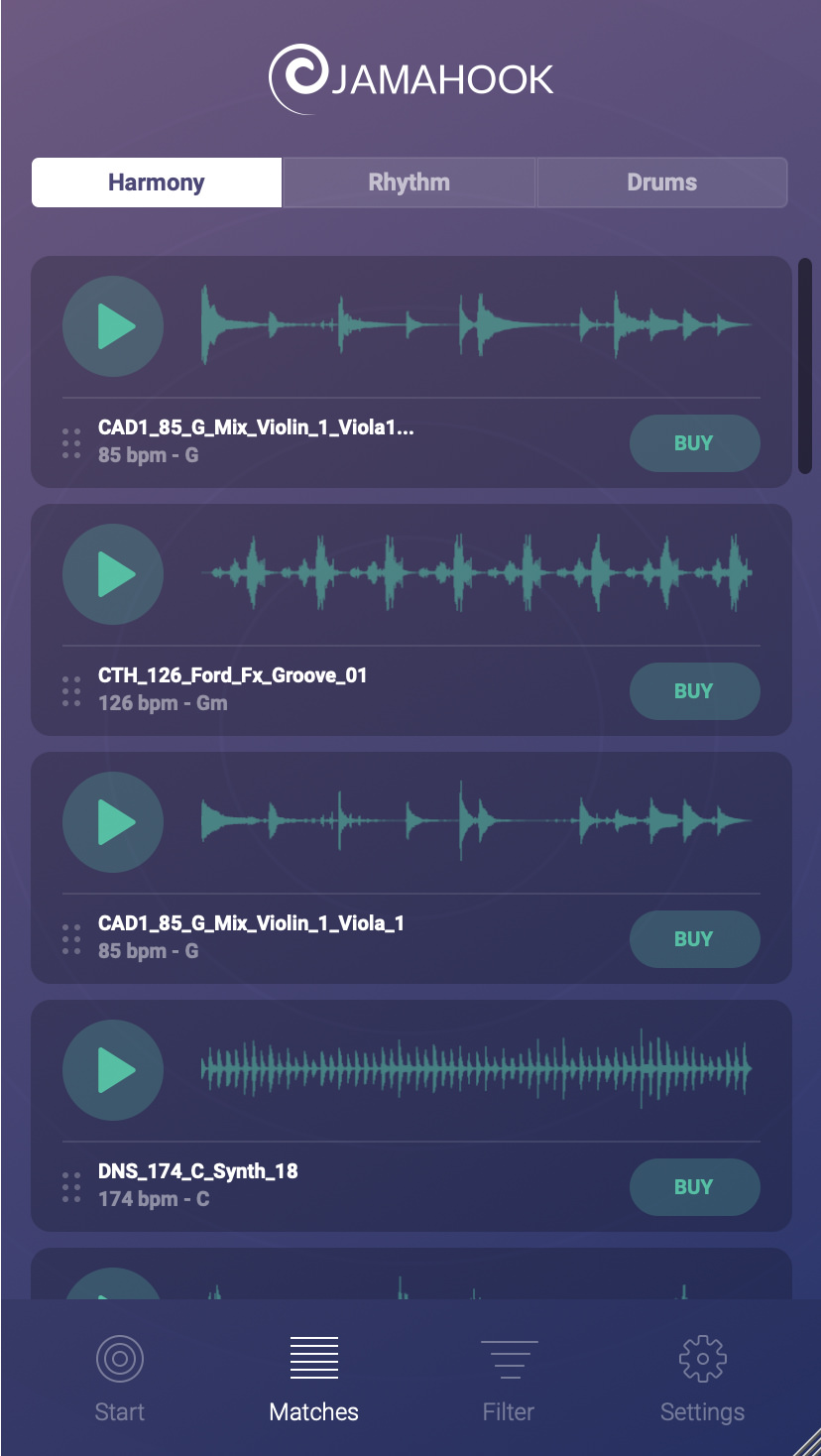
Jamahook Sound Assistant uses an algorithm developed by the Faunhofer Institute, a major German research group working in bioeconomy, quantum technologies, and of course artificial technology. This seems to be a common thread across many AI-incorporating plugins—looking outside of the music industry for algorithmic inspiration.
In our tests, Jamahook worked a treat, coming up with some very usable samples based on our song in progress. Right now Jamahook features Loopmasters samples but they’re promising to partner with more loop providers.
As with many other sample providers, Jamahook is subscription-based, with plans starting at £3.50 a month. It’s an exciting piece of software that will get even more so when additional sample providers come online.
2
iZotope Ozone 9
Mastering is something of a dark art. Sure, it’s based around concepts that we’re all familiar with—compression, EQ, limiting—but it requires a light touch, a superb listening environment, and a highly trained pair of ears. Mastering engineers tend to focus only on mastering. They’re like the brain surgeons of music production. It’s no wonder it’s hard for us regular Joes and Janes to get it right.
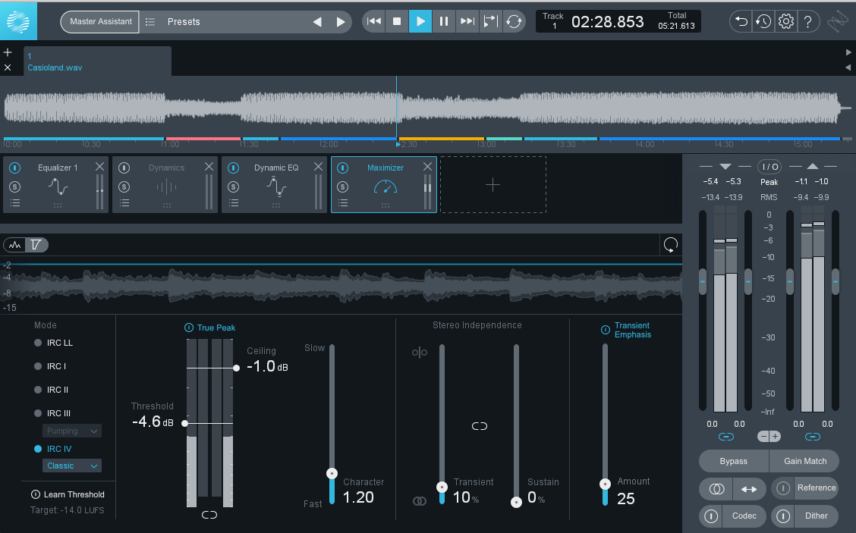
Enter Ozone 9 from iZoptope. Starting with version eight, the mastering software suite now contains the Master Assistant. Click the assistant’s button, play it your song, and it will analyze your track’s EQ balance, dynamics, and other parameters and create a mastering template to get you on your way. iZoptope are quick to point out that the assistant is providing you with a starting point and not necessarily a finished master. You could, of course, take it as it is but we prefer to use it as a launching point and then make our own adjustments.
Ozone 9 comes in three different iterations—Elements, Standard and Advanced—and the Master Assistant is available in all of them. However, the higher you go on the pay scale, the more functions it has to work with. We recommend going as high as your budget allows but even the Elements version is a good way to get started, and also to see how AI can be of service when mastering.
3
Algonaut Atlas
If you’re like us, you have gigabytes of drum samples on your hard drive. Acoustic kits, tape-saturated drum machines, found sound percussion, just folders and folders of drum sounds. And of course, they’re not organized by drum-type either but in kits. This is all well and good if you plan to use them in kit form but what if you just want to find a snare? Better set aside an afternoon then, because they’re likely spread out all over the place.
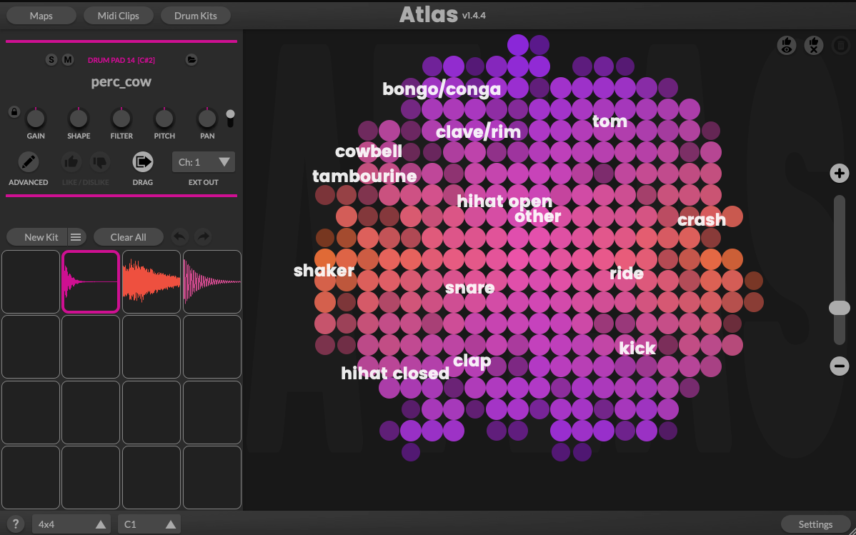
Enter Atlas from New Zealand-based developer Algonaut. Atlas and our new best friend, AI, analyze your collection of samples and arrange them in a map-like layout (hence the name, Atlas). They’re organized by type (kicks are in one area, snares another) as well as character. It makes finding samples as easy as using Google Maps. If your sample collection is too unwieldy, you can also create multiple maps of different types.
Atlas is also a sample player, with an MPC-style grid of 16 squares for programming. You can also drag and drop samples to your DAW as well. Additionally, you can create your own drum kits. The plugin even includes a set of one shots from Sample Magic. The company has also promised a sequencer in an upcoming update.
Atlas provides a unique and visual way to organize your drum sample collection. It’s a slick and useful program and is much more fun than opening and closing folders.
4
Zynaptiq Adaptiverb
www.zynaptiq.com
£208
Zynaptiq is has been at the bleeding edge of music production and AI for almost a decade now, with plugins for removing reverb from signals (Unveil), attenuating or boosting drums in a finished mix in real-time (Unmix::Drums), and adding detail using facial recognition software (Intensity). Adaptiverb, its reverb plugin, uses at least two different kinds of artificial intelligence to create gorgeous and exceptionally musical reverbs.
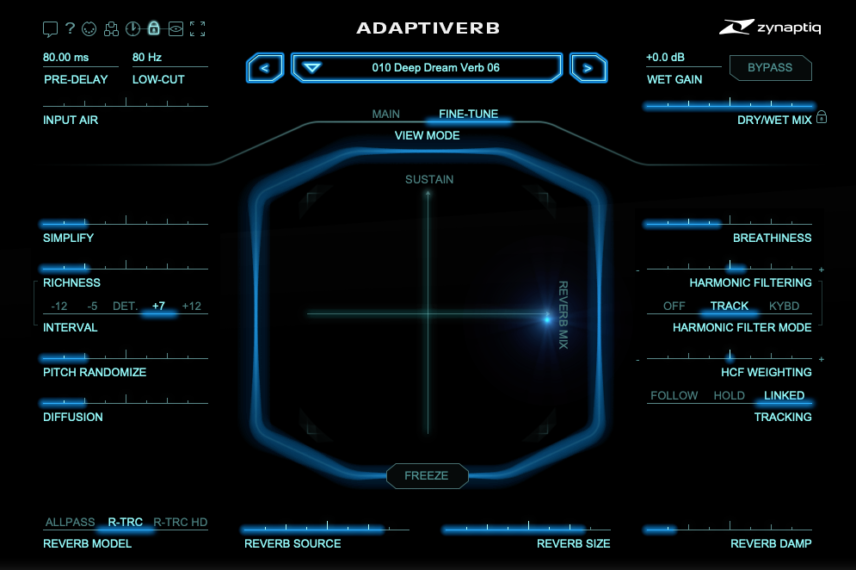
Zynaptiq calls Adaptiverb a “harmonic tracking resynthesis reverb” that uses a bionic sustain resynthesizer built using “an AI technique similar to that used to enable self-driving cars to avoid collisions”. It synthesizes a reverb tail using a network of hundreds of oscillators that learn to recreate just the pitched part of the incoming sound. It also has a ray tracing reverb module that again uses AI to simulate the paths sound waves take from a virtual sound source to a virtual listening position in a 3-D room model, except that it does 16,000 of these at the same time. We’d be lying if we said we knew exactly what this meant but one listen to the kinds of reverbs Adaptiverb is capable of proves the famous quotation by Issac Asimov that, “any sufficiently advanced technology is indistinguishable from magic”.
Adaptiverb was one of the first non-classical reverbs available. It’s definitely not cheap but the results are also nothing short of astonishing. It’s perfect for sound design, ambient, experimental, or anything else requiring musical reverbs. Give it a listen.
5
Hexachords Orb Composer Pro S
It doesn’t matter how good of a producer you are, you’re probably also not a solid symphonic composer. Much like Liam Neeson, composing classical music requires a very specific skill set, not to mention years of specialized studies. So to expect to be able to just whip up a symphonic interlude for your latest basement banger is a bit of a tall order. Ladies and gents, meet Hexachords’ AI-powered Orb Composer Pro S.
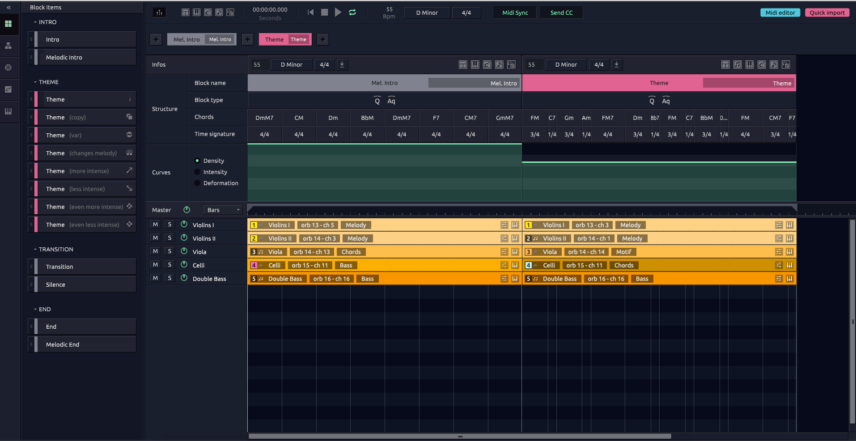
Orb Composer Pro S is a standalone program that uses artificial intelligence to create symphonic and melodic passages based on instructions that you give it. Much like working with a professional arranger, it can help you realize string arrangements and other classical additions to a song (or even a full-on symphonic piece should your needs require). Supply it with key information, mood, tempo, and other data and it will turn out a very lovely piece of music that you can then further tweak in the program. You can also export to your DAW via MIDI or audio for additional changes.
You’re not restricted to using symphonic sounds either. Although it has built-in sound generators, it can also host VST and AU plugins. If you’re classically inclined you’ll point it at your fancy Kontakt libraries but there’s nothing stopping you from loading up Massive and going at it that way.
At more than £300, Orb Composer Pro S is not the kind of program to buy on a whim. But if you have a need for some symphonic assistance, it’s a solid (and fun) way to solve your problem.
*Attack Magazine is supported by its audience. When you purchase through links on our site, we may earn an affiliate commission. Learn more.
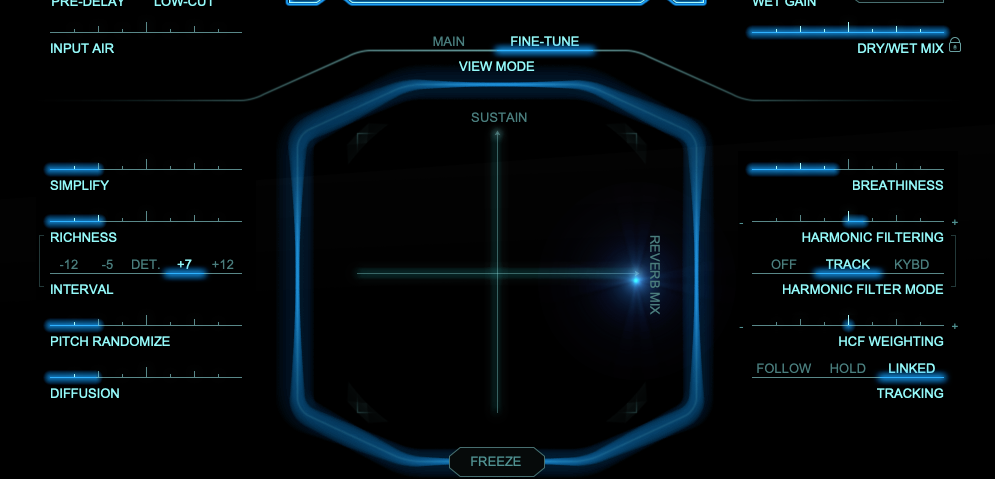

 Zynaptiq Adaptiverb
Zynaptiq Adaptiverb